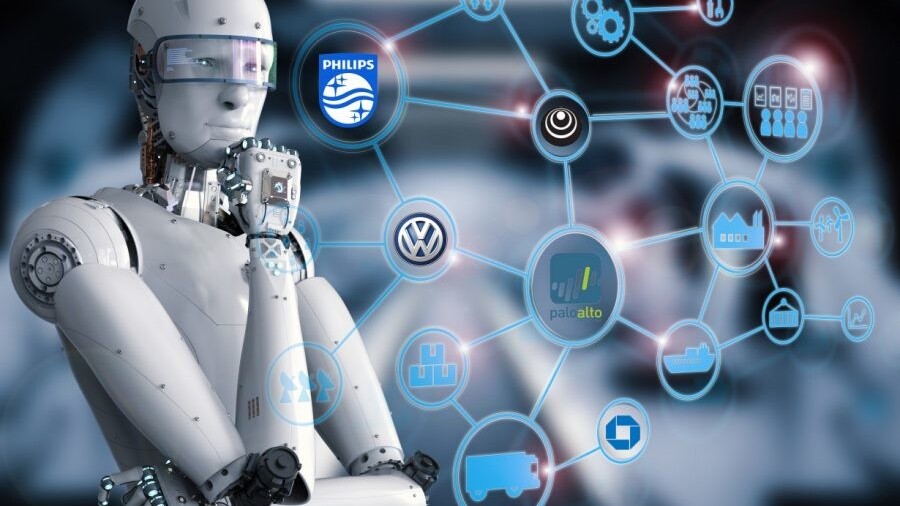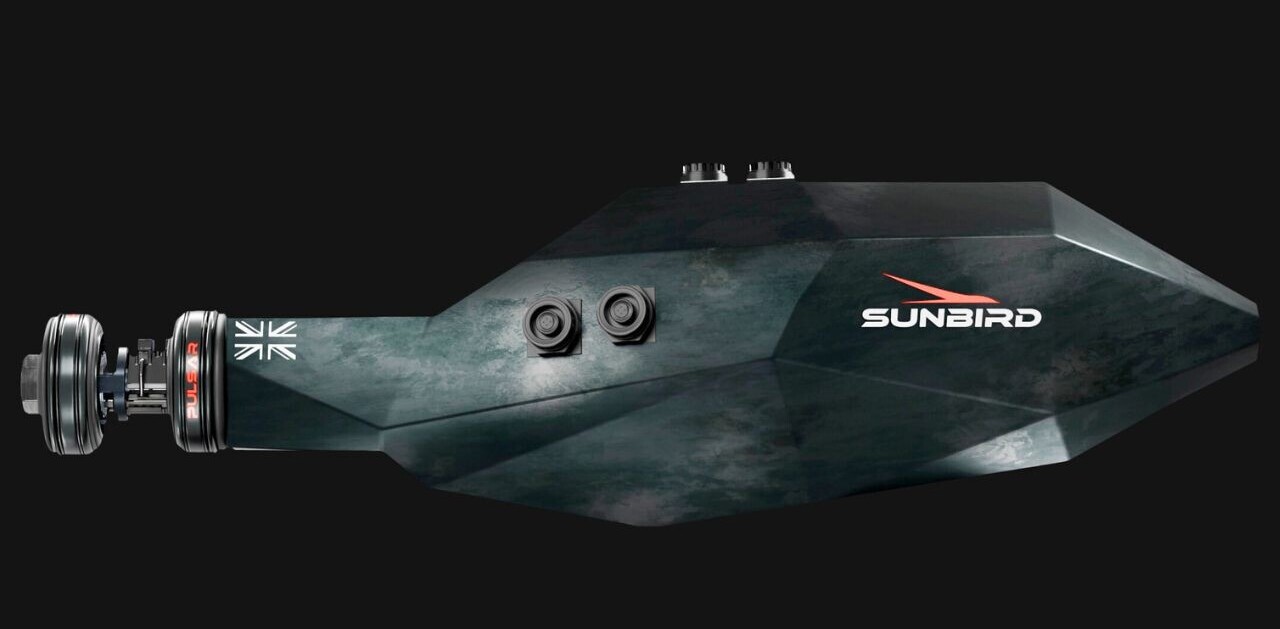
Consider yourself lucky if you happen to be studying machine learning, data science, business intelligence, or any other field that relates to AI. While automation slowly eats away at human jobs, the demand for AI talent continues to grow at an accelerating pace.
According to employment search platform Indeed, AI-related job postings have doubled in the past three years.
“When it comes to the future of work, artificial intelligence (AI) and automation are poised to impact nearly every facet of the workforce in some way,” says Dr. Andrew Chamberlain, Chief Economist at Glassdoor, another prominent employment directory website. “These technologies are being used for popular services like customer service chatbots at Bank of America, easy-to-search images on Facebook, and even automated fashion suggestions for apparel shoppers on Amazon.”
An increasing number of industries and domains are waiting to be disrupted and enhanced by machine learning and deep learning. Here are a number of exciting venues worth exploring if you’re interested in using your AI chops to develop game-changing technologies.
#1 Self-driving cars — Volkswagen
In a foreseeable future, AI algorithms will replace human drivers in cars. The technology still has challenges to overcome, and every once in a while we read about crashes and incidents that involve self-driving car test programs. But the industry is poised on ironing the kinks and rolling out self-driving cars to the masses in the next few years. And they’re looking for talented AI experts to help improve their self-driving cars technologies.
The field of autonomous driving has drawn the interest of not only big and emerging tech companies but also traditional car makers. Among them is German automotive giant Volkswagen, which has recently increased its involvement in the AI industry. The company has its own AI labs, where its experts on working on a range of projects, including the enhancement of the way self-driving cars see and react to events that happen around them.
In 2017, Volkswagen partnered with graphics chipmaker Nvidia to expand its AI projects. In early 2018, the carmaker partnered with self-driving car startup Aurora to accelerate the development of its fleet of self-driving cars.
# 2 Banking — JPMorgan Chase
AI algorithms perform best where there’s an abundance of quality data. And there are very few domains that have as much historical and structured data as the financial industry. There are many ways that AI can help make financial institutions become more efficient at providing services to their customers. Some examples include detecting and preventing fraud, algorithmic trading, and providing banking assistance to customers. In addition to many fintech startups that work on specific AI solutions, we’re seeing several large financial institutions and banks gradually transform into tech companies in their own right, acquiring startups and AI talent to develop their own solutions and maintain their competitive edge in a fast-changing market.
An example is JPMorgan Chase, the largest bank in the United States, and among the leading financial institutions employing technology and AI algorithms in different fields. The firm recently hired Manuela Veloso, the former head of Carnegie Melon University’s Machine Learning Department, as its first head of artificial intelligence research. The company’s tech budget for 2018 topped $10 billion, and AI will be a good part of it. “Looking five to 10 years out, the pace of technological innovation will only quicken as artificial intelligence, robotics, machine learning, distributed ledgers and big data will all shape our future,” Co-President and Co-Chief Operating Officer Daniel Pinto said in a letter to shareholders in April.
JPMorgan has already rolled out several AI-powered services for its clients, including the use of AI algorithms to help investors make better investment and trade decisions.
#3 Healthcare — Philips
From making healthcare services available to more people to diagnosing and treating diseases faster and with more precision, health institutions are leading various projects to employ AI in medicine and healthcare. At Philips, a long-standing tech company and a global leader in health technology, you’ll be able to work on AI solutions that will reshape the entire health care cycle, from assisting health care providers to achieve better outcomes to helping consumers manage their own health and adopt healthier lifestyles.
Philips’ focus is on combining AI and other technologies to understand and constantly adapt to the changing healthcare needs, a concept it calls “adaptive intelligence.” The company follows the vision that AI doesn’t replace healthcare professionals but augments their abilities and that enables 24/7 healthcare whenever, wherever needed.
In an interview with the Journal of mHealth, Jeroen Tas, Chief Innovation and Strategy Officer at Philips said, “Supporting clinicians by streaming data, interpreting data, providing effective visualisations, detecting deviations from normal, providing early warnings – these are all areas where we can use AI to focus on supporting the clinicians to make the right decision at the right time.”
Philips is especially well-positioned to achieve this goal because it has a long history of developing hardware and software solutions for consumers, patients, clinicians and health institutions. The company also has many years of experience in AI research in the field of medicine and healthcare. Philips already has several working AI-powered solutions at different levels, including research, diagnosis and treatment, home care and population health management.
Some examples include HealthSuite Insights, Philips’ platform for data scientists, which enables them to create and access quality health data sources and create analytical models for different purposes such as diagnosis and treatment. CareSage is another AI-powered solution offering predictive analytics. It helps prevent avoidable hospital admissions and emergency room visits by aggregating different health data sources and performing predictive analytics.
IntelliSpace Console gathers real-time information from connected health devices in the complex ICU setting and combines them with data obtained from hospital information systems and health records to help clinicians with predictive insights of the patient’s health and support them with timely and effective treatment decisions.

#4 Computer vision — Panasonic
As our robots and AI algorithms become increasingly involved in interactions with the physical world, they need to better understand what’s going on around them. The field of computer vision is a subset of AI that helps computers analyze the content of images and video and distinguish different objects. Computer vision is an important part of AI-powered technologies such as self-driving cars, security cameras, social media, healthcare, banking and more. The cool part of becoming involved in computer vision is that you get to work on a variety of interesting projects in different fields.
One of the companies actively involved in developing computer vision technology is Japanese electronics manufacturer Panasonic, which collaborates with research centers and universities to develop deep learning technologies. Panasonic is working on several interesting computer vision projects for special purposes, such as better pedestrian detection for autonomous vehicles and automatic inspection of dams through highly detailed image analysis.
#5 Cybersecurity — Palo Alto Networks
As organizations continue to generate more and more data every day, security and IT teams are finding it increasingly difficult to protect networks and prevent data breaches. According to estimates, an average organization has to process over 200,00 security events every day. Hopefully, AI and machine learning can advance security teams by perusing through data at ultrafast speeds and finding alarming patterns that need further investigation by a human analyst.
This is a fast-evolving field and many companies are employing AI to enhance their security systems to be able to respond to the growing needs of the market. Among them is Palo Alto Networks, an enterprise security company based in Silicon Valley, which has been integrating AI into its cyber threat detection and prevention software in the past year.
Earlier this year, Palo Alto Networks introduced Magnifier, a behavioral analytics solution that uses machine learning algorithms to investigate network traffic and discover stealthy activity that might be hiding a data breach. The company is working on many other projects and is on the lookout for AI talent.
#6 Emotion detection — Affectiva
In recent years, thanks to advances in natural language processing (NLP), we’ve all become used to accomplishing tasks through voice and conversational interfaces. Millions of people use Siri, Alexa, Cortana, Google and AI-powered assistants to find answers to questions, set up alarms, play music, read emails, do shopping, turn on the lights and air conditioners, or lock and unlock doors.
The next step in AI chatbots and digital assistants is understanding intent and context, which will enable them to engage in more meaningful conversations and perform much more complicated tasks. This is the focus of many large tech companies as well as AI startups, and they’re all looking for the right talent to help them propel their efforts forward. One such company is Affectiva, a Boston-based MIT Media Lab spin-off focused on building AI that can understand and respond to human emotions.
In 2017, Affectiva released an AI platform that could measure emotion through sensing and analyzing facial expressions. The technology is already being used in several verticals and use cases. The company now aims to expand its AI research and development team and extend its emotion-sensing technology beyond the face to leverage human speech.

#7 Training — Deeplearning.ai
If there’s one thing the world needs, it’s more AI experts. In the near future, a lot of jobs will depend on the work and knowledge of people who are versed in the different fields that relate to artificial intelligence.
There are several organizations that are hiring AI experts for educational programs. Among them is Deeplearning.ai, the organization founded by Andrew Ng who was also the co-founder of Google Brain and the former chief scientist of Baidu. Ng also has a long history of teaching AI and co-founded Coursera, the online training platform that hosts his famous introductory machine learning course.
Deeplearning.ai, Ng’s new venture, will be focused on teaching deep learning, which at the moment is the most popular field of AI. So, if money is not what you’re after and you want to share your knowledge, helping develop courses to train more people in machine learning and deep learning might be one of the most productive ways to put your AI skills to use.
Get the TNW newsletter
Get the most important tech news in your inbox each week.





